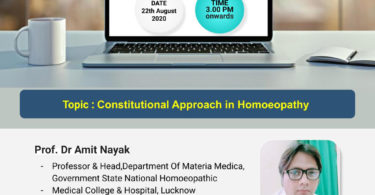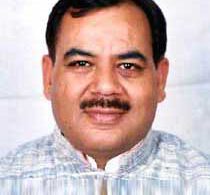Health workers will soon give homoeopathic medicines to patients in rural areas of Rajasthan if a proposal based on a pilot programme is approved.
Following the proposal, the ayurved and Indian medicine department has constituted a committee to study the feasibility of dispensing homoeopathic medicines by rural health workers — auxiliary nurse midwives (ANM), anganbadi workers and accredited social health activists (Asha).
The pilot programme was conducted in Jhunjhunu district by previous collector Pradeep Kumar Borar in February and March 2017. Health workers were trained on homoeopathic medicines from November 2016 to January 2017.
In March, health workers treated around 10,000 patients suffering from fever, cough, cold, body ache and worm infections; 7500 of them were cured. The number of outpatient departments of homoeopathic doctors also increased.
“A committee has been constituted to identify medicines which can be dispensed through ANMs as per law. The committee will also look into whether ANMs are authorised legally to dispense such medicines; a proposal may be sent to the government of India seeking its approval,” said R Venkateshwaran, principal secretary of the department.
“For immediate relief, allopathic medicines are time-tested but there are some diseases related to skin and stomach, which can be dealt with effectively by ayurved and homeopathy.”
Regarding the proposal submitted, Borar said, “We did a pilot in Jhunjhunu district, where there are 1595 aanganbadi workers, 1528 accredited social health activists and 822 ANMs. On an average Rs 10.50 crore is spent on allopathic medicines; in comparison, expenditure on homeopathy will be negligible.”
Apart from doctors, ANMs and anganbadi and Asha workers dispense allopathic medicines such as paracetamol, diclofenac sodium, iron, folic acid, ORS, and vitamin-A. Directions on the use of these medicines are issued.
“The government constituted the Ayush department, of which homoeopathy is a part. The homoeopathic treatment is not only affordable and effective but also has no side effects. Health workers could also dispense homoeopathic medicines for ailments,” Borar said.
Homoeopathic medicines can be studied and segregated by experts; health workers, after training, can be authorised to dispense such medicines in other districts, he said.
“We have asked for studying the model of the district; basic knowledge about homoeopathy should be incorporated in curriculum, so that students are aware of it,” Borar said.
“Homoeopathy medicines are easy to make and cost-effective, have no harmful side effects, and enhance immunity.”





